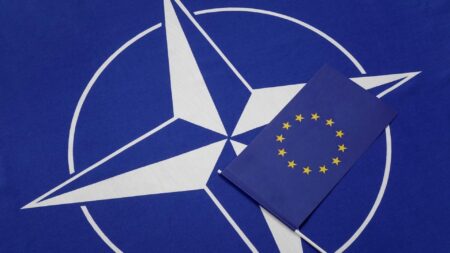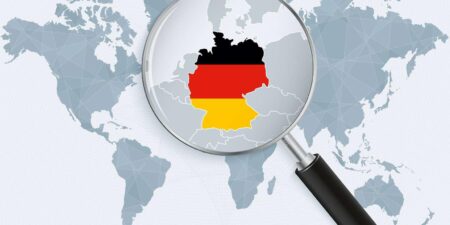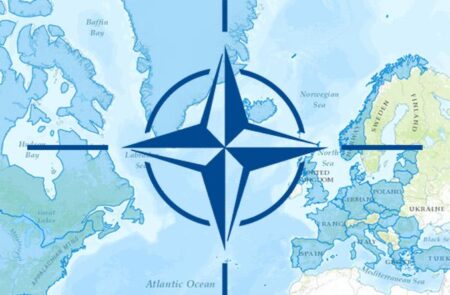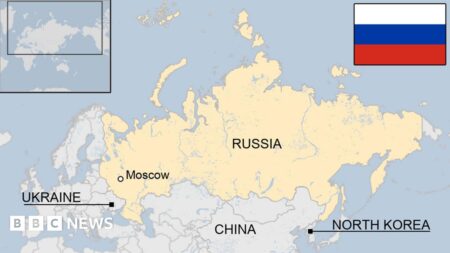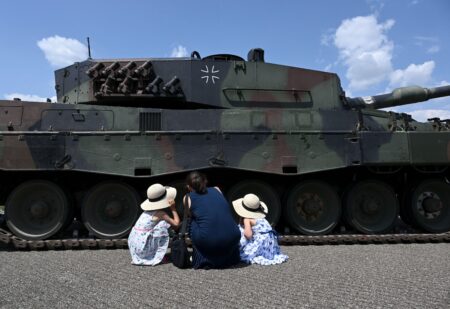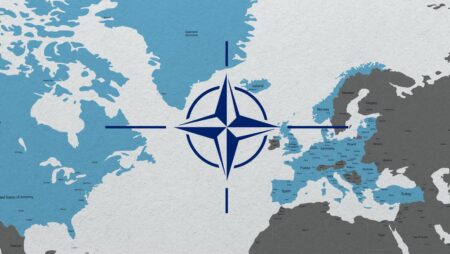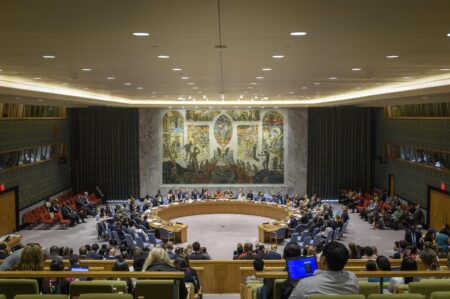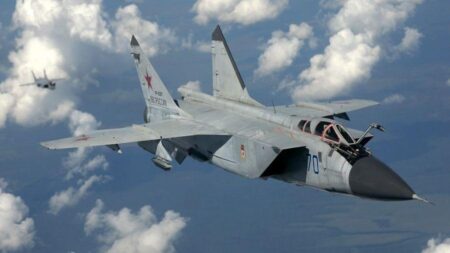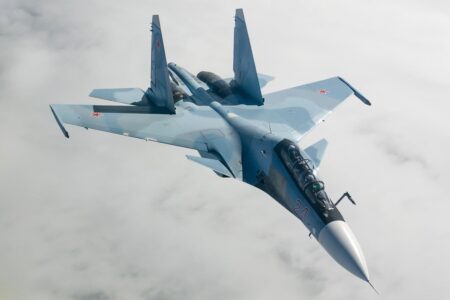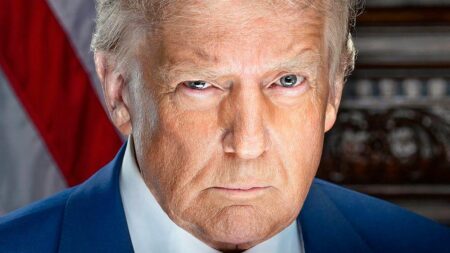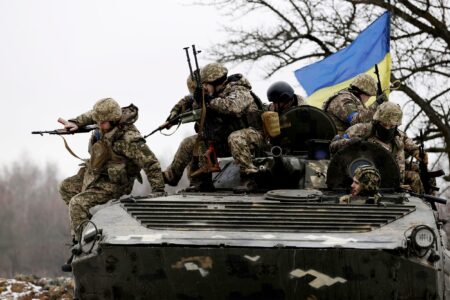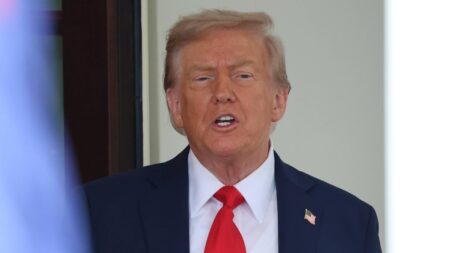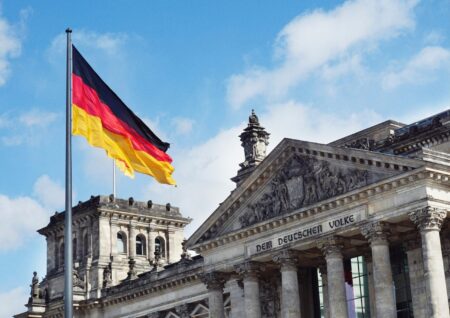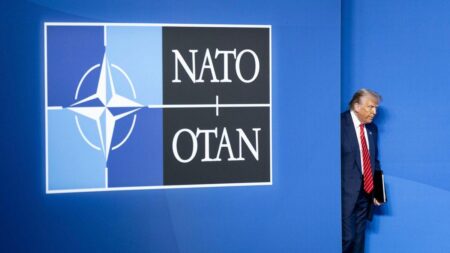NATO has delivered a powerful warning to Russia following an unauthorized airspace violation over Estonia, denouncing the breach as a grave threat to regional security and demanding immediate respect for international borders
Browsing: NATO
Germany has launched an ambitious €80 billion rearmament plan, putting European and domestic weapons front and center while pushing US arms suppliers to the sidelines. This bold strategy signals a major shift amid rising geopolitical tensions
NATO has delivered a powerful warning to Russia, demanding an immediate halt to its provocative “escalatory” actions following the violation of Estonian airspace. With tensions rising sharply across the Baltic region, the alliance is urging restraint and calling on Russia to respect international norms
Russia has charged NATO with planning a military landing in Ukraine and an occupation of Moldova, ramping up tensions in the already volatile regional conflict, according to a recent Newsweek report
Germany’s €80 billion defense shopping spree thrusts European arms into the spotlight, sidelining US weapons and signaling a bold new direction in procurement strategy. This decisive move underscores Berlin’s dedication to boosting domestic industries in the face of mounting security challenges
NATO faces urgent pressure to accelerate innovation as Russia’s expanding drone arsenal brings new and escalating security threats. Experts stress that rapid adaptation is crucial to maintaining a strategic advantage
Germany scrambled jets after Russian military aircraft flew over the Baltic Sea, authorities confirmed. This daring response underscores rising tensions as NATO ramps up its vigilance against Russian air activity in the region
The UN Security Council is gearing up for an urgent meeting following reports of a possible Russian airspace violation over Estonia. This crucial session aims to address the escalating tensions shaking the Baltic region, Anadolu Ajansı reports
Russian jets reportedly ignored warnings from NATO pilots during a recent incursion into Estonian airspace, escalating tensions in the Baltic region, The Independent reveals. NATO emphasizes the urgent importance of adhering to international protocols
Russian fighter jets boldly breached Estonian airspace, Estonia’s defense ministry confirmed. This audacious move underscores rising tensions in the Baltic region amid ongoing geopolitical conflicts, compelling NATO to maintain a sharp and vigilant watch
Former President Donald Trump urged NATO allies to immediately halt their purchases of Russian oil, emphasizing the critical need to weaken Moscow’s economy as tensions continue to rise. His call highlights the growing urgency for Europe to break free from its energy reliance
Former President Donald Trump issues a stark warning: sanctions may be imposed if NATO halts its oil purchases, escalating the already tense Ukraine-Russia conflict. His remarks inject fresh tension into an increasingly complex geopolitical battle
Former President Trump has urged NATO countries to stop buying Russian oil immediately, highlighting the critical need to sever Russia’s financial lifelines amid ongoing conflicts, Reuters reports. This powerful call ramps up the pressure on allied energy policies like never before
Former President Trump has stepped into the spotlight amid soaring tensions over Russia’s NATO incursion. At the same time, Poland is raising urgent alarms, warning that the threat of a military clash is the “closest since WWII,” as the Ukraine conflict edges dangerously toward a critical boiling point, Sky News reports
The Day with Phil Gayle takes you inside the latest Russia-Belarus military drills, revealing intense joint exercises unfolding amid rising geopolitical tensions. DW uncovers the high-stakes strategies and mounting worries over regional security
Germany has supercharged its Quick Reaction Alert (QRA) force, dramatically elevating air defense readiness amid escalating regional tensions. This powerful upgrade includes more frequent patrols and cutting-edge aircraft, strengthening NATO’s capacity to react quickly and with precision
Russian wargames near NATO borders have sharply escalated tensions after a drone incursion into Poland, igniting widespread fears about regional security and intensifying urgent demands to strengthen alliance defenses, Bloomberg reports
NATO has dramatically boosted its defenses following the downing of Russian drones over Poland. This decisive move aims to reinforce regional security amid escalating tensions between Russia and NATO member nations, officials reveal
Russia has fired back fiercely at NATO’s outrage over a major drone breach, rejecting the accusations and warning that tensions could escalate even further. This incident marks a pivotal flashpoint in the mounting security standoff between Moscow and the alliance
Photos reveal Russian naval vessels closely tailing US and NATO warships in the Atlantic, spotlighting rising maritime tensions amid escalating geopolitical rivalries, according to Newsweek sources

